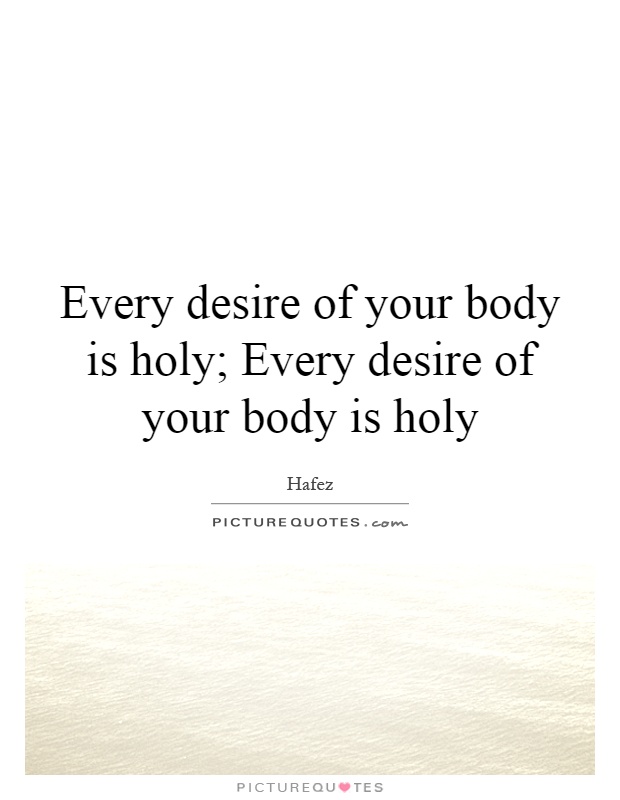Every desire of your body is holy; Every desire of your body is holy

Every desire of your body is holy; Every desire of your body is holy
Hafez, the renowned Persian poet of the 14th century, is known for his mystical and spiritual poetry that explores themes of love, divinity, and the human experience. One of his most famous lines is "Every desire of your body is holy; Every desire of your body is holy," which encapsulates the idea that our physical desires are not inherently sinful or base, but rather can be seen as sacred and worthy of exploration.In the context of Hafez's poetry, this line can be interpreted as a celebration of the human experience in all its complexity. Hafez believed that the body and the soul are interconnected, and that our physical desires are a natural part of being human. By embracing and honoring these desires, we can come to a deeper understanding of ourselves and our place in the world.
Hafez's poetry often explores the themes of love and longing, and he believed that these emotions were a reflection of the divine within us. In his view, our desires are not something to be ashamed of or repressed, but rather something to be embraced and celebrated. By acknowledging and accepting our desires, we can come to a greater sense of wholeness and connection to the world around us.
Hafez's poetry is filled with imagery of wine, music, and dance, all of which are symbols of joy and celebration. He believed that these experiences could bring us closer to the divine and help us to transcend the limitations of the physical world. By embracing our desires and allowing ourselves to fully experience the pleasures of life, we can come to a deeper understanding of ourselves and our connection to the universe.












 Friendship Quotes
Friendship Quotes Love Quotes
Love Quotes Life Quotes
Life Quotes Funny Quotes
Funny Quotes Motivational Quotes
Motivational Quotes Inspirational Quotes
Inspirational Quotes